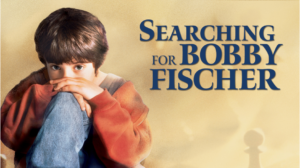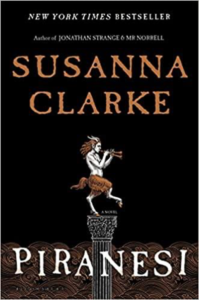The Queen’s Gambit and Searching for Bobby Fischer
The Queen’s Gambit is a 7-part Netflix series about a young girl (Beth Harmon) that becomes a chess prodigy, a grandmaster, and eventually a world champion, beating the invincible Russian master. Led by a riveting performance by Anya Taylor-Joy, whose acting is as uniquely powerful as her face is uniquely beautiful, the series was an easy binge that only rarely failed to keep me engrossed in Beth’s story. It was so good, in fact, that I found myself wanting to believe it was based on a true story, although I couldn’t remember any female winning the world chess championship.
In Searching for Bobby Fischer, a couple discovers that their seven-year-old son has a rare talent for chess, a discovery that transforms the father from a man that wanted a happy child to an obsessive booster and, at times, a martinet.
Both movies introduce those who, like me, have only a passing knowledge of chess to the highly demanding and sometimes brutal culture of world-class chess competition. And both give some insight into what it takes to play at such a level.
Of the two, I preferred The Queen’s Gambit for several reasons: It did a better job of providing an idea of what it must be like to have a rare level of genius. And it did a better job of depicting the inevitable emotional downside of trying to find fulfillment in life after one loses one’s perch as a world champion.
My one disappointment with The Queen’s Gambit was the discovery (after doing a bit of research) that I was right. There never has been a female chess champion of the US, let alone the world. In fact, of the top 100 grandmasters in the US, only one is a woman. (Two if you include Hungarian-American dual-citizen Susan Polgar.) In a game that is purely intellectual, where men have no apparent natural advantages, where women are allowed to play against men… it makes you wonder why that is so.
Interesting Facts: Unlike Anya Taylor-Joy, who didn’t know how to play chess before taking the lead role in The Queen’s Gambit, Max Pomeranc (the lead in Searching for Bobby Fischer) was already an avid player. Producers of the film wanted someone who would look convincing and comfortable playing the game on camera.
According to The NPD Group, sales of chess sets jumped 87% in the US and sales of chess books jumped 603% after the release of The Queen’s Gambit. Additionally, eBay reported a 215% increase in sales of chess sets and accessories.

The Queen’s Gambit
Released October 23, 2020
Series Director & Creator: Scott Frank
Starring Anya Taylor-Joy, Chloe Pirrie, and Bill Camp
From Entertainment Weekly: “Taylor-Joy excels in the quiet moments, her eyelids narrowing as she decimates an opponent, her whole body physicalizing angry desperation when the game turns against her.”
From Time Magazine: “Just as you feel a familiar dynamic forming, in which a talented woman ends up intimidating her suitors, The Queen’s Gambit swerves; it’s probably no coincidence that a story about chess thrives on confounding audience expectations.”
From Rotten Tomatoes: “Its moves aren’t always perfect, but between Anya Taylor-Joy’s magnetic performance, incredibly realized period details, and emotionally intelligent writing, The Queen’s Gambit is an absolute win.”

Searching for Bobby Fischer
Released August 11, 1993
Directed by Steven Zaillian
Starring Max Pomeranc, Joe Mantegna, and Ben Kingsley
From Los Angeles Times: “Zaillian proves as much of a prodigy as his chess-playing subject, turning out a film that is a beautifully calibrated model of honestly sentimental filmmaking, made with delicacy, restraint and unmistakable emotional power.”
From Entertainment Weekly: “Based on a true story, Searching for Bobby Fischer is a wonderful movie, a delicate and touching drama that takes us deep inside the eccentric competitive mystique of grandmaster chess.”
From Rotten Tomatoes: “As sensitive as the young man at its center, Searching for Bobby Fischer uses a prodigy’s struggle to find personal balance as the background for a powerfully moving drama.”



